Emergency Dentist – Springdale, AR
Your Home for Urgent Care

Dental emergencies like severe oral pain and broken teeth rarely pick convenient times to strike. You need to have an emergency dentist in Springdale, AR you can count on to see you as soon as possible when you have an urgent oral health issue – and Dr. Bollin is happy to be that dentist. Call Sunset Avenue Dental to schedule a dental appointment whenever a dental emergency occurs; you can depend on our dental team to treat you as quickly as possible when you need it most.
Why Choose Sunset Avenue Dental for Emergency Dentistry?
- Emergency Appointments Available
- Dentist That Doesn’t Waste Time
- Skilled Team That Cares About Comfort
How We Treat Dental Emergencies

- Emergency appointment: If you have a dental emergency (or even just a situation that you think might be a dental emergency), call our dental office right away so that we can schedule an appointment for you as soon as possible.
- Comprehensive emergency exam: Once you arrive, a detailed emergency exam will be performed in order to confirm the source of your emergency. Our team will take steps to put a stop to any immediate discomfort you might be suffering from.
- Review findings: We will work with you to create a fully personalized treatment plan that addresses your specific dental issues. The estimated costs and expected treatment timeline will be explained to you before you make any decisions.
- Get the care you need: Emergency care might include dental fillings, crowns, root canal therapy, and many other treatments. Our team is prepared to take whatever steps are needed to restore your oral health.
The Most Common Dental Emergencies
Dental emergencies can take many forms, but no matter what kind of situation you’re dealing with, your first step should always be to call our dental office to let us know about your symptoms. Below is an overview of some of the most common emergencies that you or your loved ones might experience at some point.
Understanding the Cost of Emergency Dentistry

As you can probably guess, the cost of emergency dental care depends on what kind of emergency you have and what type of treatment you need. We’ll explain the costs associated with the recommended service in full detail so that you aren’t caught off guard when the time comes to pay. If you’re unsure about how you’re going to fit your emergency care into your budget, we can discuss your available options with you. Dental emergencies are usually much more affordable than medical emergencies, and avoiding needed care can cause you to require more expensive work to repair more serious damage down the line.
Every Dental Emergency Is Different

It is essentially impossible to tell you what the cost of your emergency dental treatment will be before you receive an emergency oral exam in our office, and we’ll always make sure that you understand your options and how much they cost before any treatment begins. Dental emergencies range in severity, and some can quickly and inexpensively be addressed with treatments like fillings or prescription mouthwash while others may require more complex solutions like extractions or a root canal. If a tooth needs to be replaced with a dental implant or restored with a dental crown, the cost of treatment will be higher.
Does Dental Insurance Cover Dental Emergencies?

Most dental insurance plans offer at least some coverage for dental emergencies. Some plans may cover one or more yearly emergency exams, and common emergency services like root canals, crowns, and extractions usually receive at least partial coverage that typically ranges between 50% and 80%. It’s important to know what your insurance offers before committing to treatment since every plan is different and yearly maximums must be considered. We’ll be more than happy to help you with this process.
However, preventative care like routine exams and cleanings are usually 100% covered by most plans. Take advantage of these benefits to prevent most emergencies from ever happening.
Other Options for Making Dental Emergencies Affordable

While we accept many insurance plans, we also offer other financing options. A few of these include:
- CareCredit is a third-party financier that offers payment plans with little to no interest for eligible patients. Ask us how to use this option to split your bill into manageable monthly payments.
- We offer in-house membership plans that can give you access to quality dental care for an annual fee. This involves no deductibles, waiting periods, pre-authorizations, or annual maximums, allowing patients to receive preventive care as well as discounts on other treatments.
Taking Care of Your Smile Can Save You Money
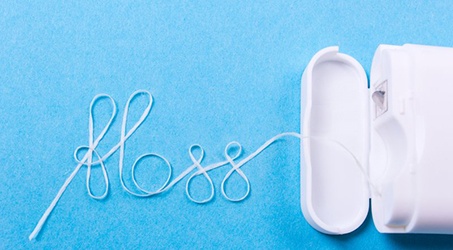
While dental emergencies often result from accidents that aren’t anybody’s fault, most of the time they can be prevented by proper care and oral hygiene. Keeping up with your biannual dental checkups while brushing, flossing, and using antibacterial mouthwash every day can save you thousands of dollars over the years.
However, once you become aware of a dental emergency, treating it quickly is the only way to prevent it from getting worse. Allowing these issues to progress can cause miserable pain while making more expensive treatments necessary. For example, immediately treating a toothache with a root canal that can save your tooth is less expensive than waiting until you need to have it extracted and replaced with a dental implant.
Keys to Preventing Dental Emergencies

Of course, accidents aren’t 100% avoidable. That’s why it’s so important to have a skilled emergency dentist that you can rely on if you wind up with a cracked, fractured, or otherwise damaged tooth. With all of that said, you can make it less likely that you’ll suffer from a dental emergency in the future if you:
Come in for a Dental Checkup and Cleaning Biannually
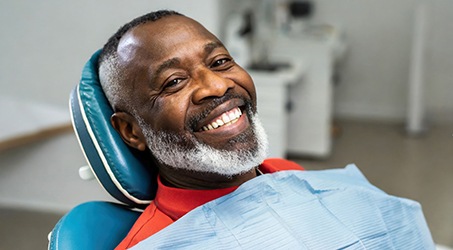
Did you know that your biannual visits to our Springdale dental office reduce your chances of experiencing a painful dental emergency? That’s because we dedicate time during these appointments to screening for tooth decay, gum disease, damaged restorations, and the like. As a result, we can catch issues in the early stages so they never develop to the point where they require same-day care. We also use the special tools we have at our office to gently clear away plaque and tartar, reducing your chances of experiencing a painful toothache from a cavity or infection.
Brush and Floss Consistently
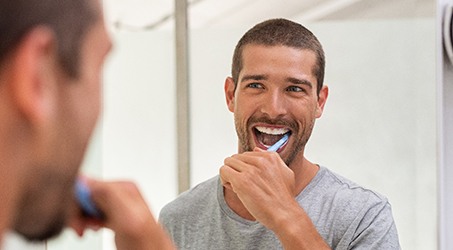
Another way you can protect your teeth and gums from harm is by committing to a solid dental care regimen. That starts with using fluoridated toothpaste and a soft-bristled toothbrush to brush your teeth for a full two minutes in the morning and at night. Again, this is just the start; brushing alone only cleans about 60% of the surface of your teeth. To clean between them and along your gumline, you also need to floss and rinse with mouthwash each evening.
Stick to a Nutritious Diet

The nutrients that are in foods like apples and celery aren’t just good for your body; they are good for your oral health! That’s because they help remove food particles, plaque, and other debris from your teeth. Plus, they give your body the nutrients it needs to help fight off infections. So, focus on eating lots of smile-friendly foods and keeping ones that are packed with sugar to a minimum.
Wear a Mouthguard When You Play Contact Sports
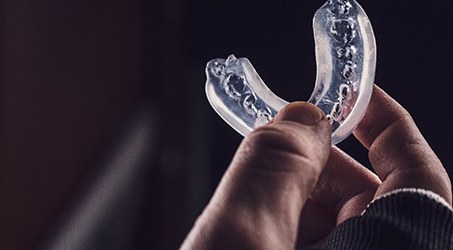
Simply put, if you don’t wear a mouthguard while participating in sports, there is a chance that you’ll wind up with a serious dental injury. That’s why we recommend wearing one during practices and games! You should also wear one during non-contact sports (i.e., skateboarding, surfing, running), and if you grind or clench your teeth at night.
Use Scissors to Open Packages
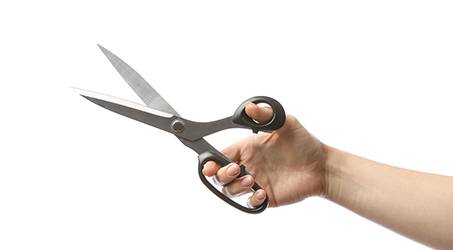
If you’re having a hard time opening plastic wrapping, don’t use your teeth! It’s also important to avoid other unhealthy habits, like smoking, chewing on ice cubes, and biting your fingernails. That way, you’re significantly less likely to chip, crack, or fracture a tooth.
Dental Emergency FAQs
Will My Toothache Go Away On Its Own?
While under some circumstances the pain from a toothache may fade, the underlying condition that caused it will not. It is therefore crucial that you still see a dentist even if you can no longer feel your toothache.
Tooth pain is sometimes a consequence of infections that have penetrated deep within the tooth, damaging the nerve tissue within. This causes intense discomfort until these nerves die completely, at which point the pain will suddenly stop. However, this is a sign that the tooth could die completely soon, meaning that it's critical you talk to us as quickly as possible if you notice this has happened.
Should I Visit the Emergency Room First for Dental Emergencies?
While you can expect to be seen fairly quickly at the emergency room, they typically lack the tools necessary to treat the teeth. That means you can't rely on them to deal with dental emergencies.
The only situations where you should visit the ER is if your circumstances has become life-threatening, like if swelling is obstructing your breathing or if there are severe lacerations in your mouth. And even in these cases, you'll still need to talk to a dentist once the ER has stabilized you.
Do Chipped Teeth Heal?
Enamel doesn't grow back, which means that chipped teeth are not going to heal over time. The damage will be permanent unless it's dealt with by a dentist.
Thankfully this process is fairly easy; in most circumstances dentists will layer a composite resin onto the tooth and harden it into place with a specialized light, repairing your tooth within as little as a single appointment.
Do I Need to See the Dentist for Minor Chips to Teeth?
Even if the damage to your teeth is superficial, it may not stay that way forever. Leaving chips and cracks as they are gives them an opportunity to widen, exposing the interior of the tooth to infection. If the tooth is jagged, it may also damage the soft tissue in the mouth. For these reasons, it's a good idea to talk to us about any chip to your tooth, no matter how small.
I Need a Checkup & Cleaning I am Concerned About Bleeding Gums I Have a Cavity or Broken Tooth I am Missing One or More Teeth I Want to Enhance My Smile I Want a Straighter Smile I Need My Wisdom Teeth Removed View Our Services
